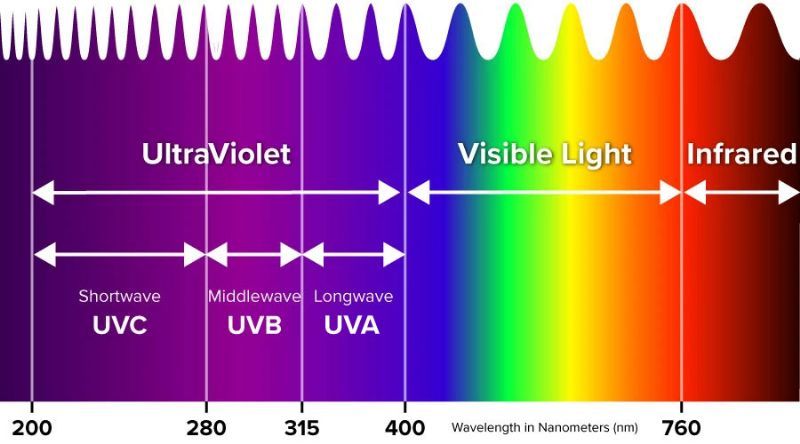 Written by Rod W. Lekey, RN, DCS
Written by Rod W. Lekey, RN, DCS
Ultraviolet (UV) light, a type of electromagnetic radiation, is classified into three types based on wavelength: UV-A, UV-B, and UV-C. Of these, UV-C light is the most potent germicidal agent, capable of inactivating harmful microorganisms such as bacteria, viruses, and mold. While UV-C Light Disinfection Devices offer promising benefits in disinfection and sterilization, it is essential to understand the safety implications for humans when exposed to both artificial and natural UV-C sources.
--------------------------------------------------------------------
--------------------------------------------------------------------

UV-C light typically has a wavelength of 254 nm. Lamps with this wavelength are usually found sterilizing medical equipment in biological safety cabinets (BSC). Although effective in eliminating pathogens, traditional UV-C light is considered harmful to humans. It can penetrate the outer layers of the skin and eyes, leading to skin burns, erythema (sunburn), and photokeratitis (eye inflammation). Consequently, UV-C devices should not be used in occupied spaces, and protective measures must be taken to ensure the safety of those operating UV-C lamps.

In recent years, far-UV-C light, with wavelengths around 222 nm, has gained attention as a potentially safer alternative for human exposure. Research indicates that far-UV-C light can effectively inactivate microorganisms without penetrating human skin or eyes, thanks to its shorter wavelength. This unique feature allows for the possibility of continuous disinfection in occupied areas without causing harm to humans. It’s important to note that you should follow the manufacturer's instructions and safety guidelines when using any UV-C light source.
.jpg)
Naturally occurring UV-C light is emitted by the sun, but fortunately, it is almost entirely absorbed by the Earth's atmosphere, specifically the ozone layer. This absorption prevents potentially harmful UV-C radiation from reaching the Earth's surface, protecting living organisms from its dangerous effects.

UV-C light is not present in sunlight that reaches us because it is absorbed by the Earth's atmosphere. The ozone layer absorbs the majority of UV-C radiation, preventing it from reaching the Earth's surface. The small amount of UV-C radiation that makes it through the ozone layer is still not enough to have a significant impact on life on Earth. However, it can be produced artificially for use in disinfection, as it is highly effective in killing bacteria and viruses.
While UV-C light is an effective and chemical-free disinfection method, its safety around humans depends on the specific wavelength and exposure duration. Traditional artificial UV-C light (254 nm) is considered harmful and should not be used in occupied spaces. Far-UV-C light (222 nm) shows potential as a safer alternative for continuous disinfection, as long as you adhere to the manufacturer's instructions and safety guidelines.
Check out our favorite UV-C light disinfectant products by Med Solutions!
Learn more by reading UV Disinfection articles that bust myths and give you quick facts!

Rod is a registered nurse with previous clinical experience as an EMT-B, hospice provider, and emergency room nurse. He now works as an operating room nurse at a Level I Trauma Center and research hospital, where sanitization and environmental control are absolutely crucial to positive patient outcomes. He spent over 30 years in the military and aerospace industry and holds a doctorate in computer science. He is fascinated with exponential technologies and passionate about their impact on society and culture, with interests in improving healthspan, espousing positive aging, practicing holistic wellness, and increasing functional fitness.